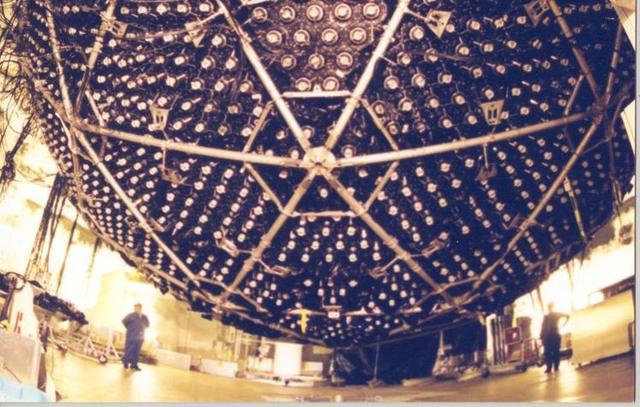
A news story without any sense of resolution came out on top of this week's science stories. The researchers behind the "faster-than-light neutrinos" results have found a couple of hardware glitches that may possibly explain the unexpected results, but they have to fix the problem areas and try a new run before they can tell whether the neutrinos are still breaking the law. Meanwhile, other researchers have tested the limits of Moore's law, cleared the waters on water use, and managed to get research done without a lab.
Faster-than-light neutrino result reportedly a mistake caused by loose cable - UPDATED: Sources at CERN told ScienceInsider that a hardware problem with an atomic clock caused a 60 nanosecond boost to neutrino speeds.
We can do no Moore: a transistor from a single atom: We rely on impurities called dopants to adjust the behavior of silicon circuitry. Now, researchers have demonstrated a transistor that's nothing more than a single dopant atom.
Survival in academia, the tenure track not taken: A new study in Science looks at the hard reality of academic careers in science and technology. Less than half those who enter will spend their entire careers in academia, and the median academic career of someone hired as an assistant professor lasts 10.9 years.
Recent formations say the Moon's not (tectonically) dead yet!: Although the major tectonic features on the Moon are ancient, better imaging equipment has spotted smaller, recently formed channels called graben.
Turning Ireland's water and wind into energy exports: At the AAAS meeting in Vancouver, Igor Shvets described a project that could make Ireland a renewable energy powerhouse, capable of exporting electricity to the UK.
Humanity's water footprint: US exports the most, uses the most per capita: You've heard of carbon footprints. A recent paper delves into humanity's water footprint, the various components that contribute to it, and the international trade of water that's been incorporated into products.
Environment researcher admits leaking climate docs, claims they're genuine: Peter Gleick, founder of the Pacific Institute and a noted environmental researcher, has admitted to obtaining the documents that allegedly laid out how an anti-climate-science thinktank planned on keeping climate science out of the school system.
How to run a successful research lab without having a lab: Atul Butte gave an impressive talk about how his group figures out what tests to run using open data, then manages the work without ever lifting a pipette or breeding a mouse.
WHO calls for publication of the full details of the new avian flu virus: Science and Nature have papers that describe a version of the avian flu that spreads among mammals. The World Health Organization has now weighed in with its thoughts on whether they should be published.
Nanopore tech brings rackmounted genome machines, USB-based DNA sensors: Oxford Nanopore has announced it will be selling its rackmounted DNA sequencing machines this year, adding to the competition for fast, cheap genomes.
Listing image by Photograph by nasa.gov
reader comments
0